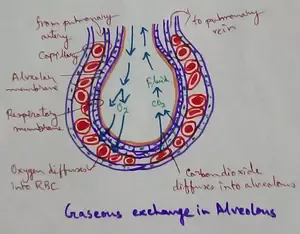More Haste, Less Speed
The proverb is a metaphor that too hasty an approach in dealing with a task, shall ultimately cost one dearer since the likelihood of mistakes and error increase manifold, leading to a resultant delay. This was introduced for the first time in English lexicon by John Heywood in his glossary of English Proverbs, written in 1546.
Thus, it always is wide and prudent to do a job well-deliberated and thought after rather than in a hurry which will end up in making more mistakes. Our sense of haste in completing a job clouds our judgement and makes us prone to errors and eventually the job shall end up consuming more time than initially planned. So it is best to clear our thoughts, calm our mind and then proceed on with the job so that chances of blowing it up is minimized. Logically, it means that more the haste, more the time taken to complete a job.
I shall attempt to illustrate this proverb using a modern day anecdote. I indulge in some music therapy and take music lessons from a learned master. One day, a young boy with a guitar hanging from his shoulder barged into the master’s room without any preliminaries and immediately proceeded to put forth his demand that he be initiated into the music class immediately.
He also made it clear that time was a premium in his case, though he was willing to shell out as much money as needed for accomplishing his mission.. He wanted to know from the Master how long it would be, before he is well-versed with the nuances of the lesson. The Master gave him “seven years”.
The young man was left agape and made it amply clear that the duration was unreasonably long. Since he was in such urgency as he had to prepare himself for an Annual Musical Fete by next year, he was willing to practice most diligently. In that case how much time it would entail? The master answered “10 years”.
The young man was even more aghast and offered to rehearse for 18 hours a day, if need be, since he was so eager and anxious to prepare himself for the role. How much time does the Master think he would need, in that case? The master, answered “Perhaps, Twenty Years, perhaps more.”
The young man clearly thought the Master did not hear him right or had gone bonkers because very soon he stomped off the door. Once he left, the Master smiled in his zen like stance and said that the more impatient we are to do something the more time it is going to take. Since if we were to develop some creative talents within ourselves and music is like obeisance to the Divine forces, one can only do so after surrendering all his attachment, anger, anxiety and ties. But the hastier we are, the more attached we are and consequently, the more remote we are from our goals.
Since the young man was already focused on watching himself go up on stage, singing to woo his audience and winning the applause of one and all, he had a long way to go before he could reach the state of mind in which he could surrender his ego before the Master and learn to be a true disciple.
From More Haste, Less Speed to HOME PAGE
Recent Articles
-
Formed Elements of Blood | Erythrocytes | ESR |Leukocytes |Neutrophils
Jan 15, 26 01:25 AM
Formed elements formed elements are constitute about 45 % of blood afeias haematocrit value packed cell volume mostly of red blood corpuscles and are of 3 types- erythrocytes, leukocytes and blood pla… -
What Is Plasma? | Blood Plasma | Proteins | Nutrients | Cholesterol
Nov 07, 25 10:29 AM
Blood is a mobile fluid which is a connective tissue and is derived from the mesoderm like cell any other connective tissue. Colour of blood is reddish and that flows inside the blood vessels by means… -
Disorders of Respiratory System | Tuberculosis | Pleurisy | Emphysema
Oct 28, 25 11:39 PM
Tuberculosis is very common disease and is caused by a type of bacteria called Mycobacterium tuberculosis. This disease causes different trouble in the respiration and infection of several parts of th… -
Regulation of Respiration | Respiratory Centres | Inspiratory Area |
Oct 14, 25 12:13 AM
Respiratory Centre is the area that controls the rate of respiration and it is observed to be located in medulla oblongata and pons. Respiratory Centre has the following will dispersed components like… -
Explain Transport of Gases | External Respiration | Tissue Respiration
Oct 09, 25 11:35 PM
In humans gaseous exchange is completed in the following ways the steps are - External Respiration or Breathing - Breathing in false taking in of Oxygen and giving out of carbon dioxide in the body. M…





New! Comments
Have your say about what you just read! Leave me a comment in the box below.